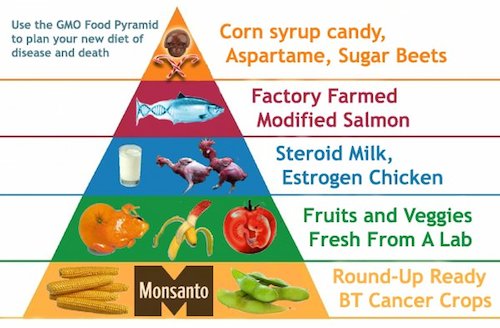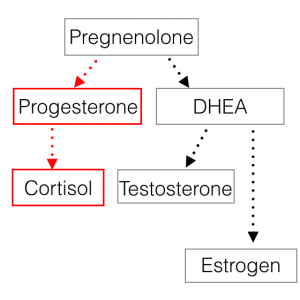In our fast-paced, modern world, it’s easy to overlook the profound impact our lifestyles have on our ancient biochemical makeup. From the food we eat to the stress we experience, every aspect of our daily lives interacts with the intricate mechanisms of our bodies, shaping our health and well-being in ways we’re only beginning to understand. Join us as we delve into the fascinating intersection of modern lifestyles and ancient biochemistry, exploring how our evolutionary past continues to influence our present-day health challenges and opportunities.
Key Takeaways
-
Modern Lifestyles vs. Ancient Biochemistry: The article explores the contrast between our modern way of life and the evolutionary biology ingrained in our genes.
-
Impact of Modern Habits: It delves into how modern habits, such as sedentary behavior, processed foods, and chronic stress, can disrupt our ancient biochemical pathways, leading to various health issues.
-
Chronic Stress and Inflammation: Chronic stress triggers inflammatory responses in the body, contributing to a range of health conditions, including metabolic disorders and immune dysfunction.
-
Evolutionary Mismatch: Our evolutionary biology, finely tuned over millennia, is often at odds with the demands of contemporary living, highlighting the importance of aligning our behaviors with our genetic heritage.
-
Practical Strategies for Wellness: The article emphasizes the significance of adopting lifestyle practices that prioritize proper nutrition, regular physical activity, stress management techniques, and adequate sleep to support our innate biological needs and promote overall well-being.
“Normal is getting dressed in clothes that you buy for work and driving through traffic in a car that you are still paying for – in order to get the job you need to pay for the clothes and the car, and the house that you leave vacant all day so you can afford to live in it”. – Ellen Goodman.
The Agricultural Revoltuion
The Agricultural Revolution marks a pivotal point in human history, signaling the transition from hunter-gatherer societies to settled agricultural communities. This period, which began around 10,000 years ago, saw humans shift from nomadic lifestyles to sedentary farming practices, cultivating crops and domesticating animals for sustenance. The development of agriculture enabled greater food security, population growth, and the emergence of complex societies. It fundamentally transformed human societies, laying the groundwork for civilization as we know it today. The Agricultural Revolution promised liberation from hours of physical labor, the opportunity to transcend the hunter-gatherer lifestyle, and the eradication of world famine. We delude ourselves by believing that agriculture is the easiest path for livelihood. It has been firmly established that there exists a direct correlation between the effort required for survival and the extent of reliance on agriculture.
The energy expended to can a small portion of corn with water and salt (often lacking in nutrition) for display on supermarket shelves is staggering. Equally astonishing is the labor required to afford such a small quantity of corn. The transformation of food into a marketable commodity is a hallmark of modern culture. Securing food as a commodity is fundamental to our economy. After all, if food were universally accessible, what incentive would there be to work?

We’ve departed from the tribal communities that once provided a deep sense of belonging and security, leaving many feeling isolated and stressed. Unlike in ethnic tribes where lifelong security was paramount, modern individuals, despite material wealth, face uncertainty, particularly regarding employment. The fear of job loss can lead to extreme reactions, including violence or suicidal thoughts, underscoring the vital need for a sense of security in today’s society.
“Paleo” or “Caveman” dieting has become the fad of recent years as we start to reject the processed, non-foods that are prevalent and harmful in today’s modern world.
Stressed and Time Poor
We all feel pressed for time, often multitasking even during meals—scrolling through phones, reading, or watching TV. Fewer than 5% focus solely on eating, impacting metabolism and eating habits. It’s a simple concept: “Focus on your food to lose weight.”
In today’s fast-paced world, guilt accompanies idle moments. Taking time off or prioritizing work-life balance is stigmatized as lazy. Free days are quickly filled with tasks or activities, leaving little room for relaxation. This discomfort with idleness has fueled interest in practices like meditation and yoga, though even these are seen as activities. Simply pausing to do nothing is rare, even amidst busy schedules.
Phone conversations have been replaced by texts and emails, reflecting our society’s preference for efficiency and constant communication.
Health Begins and Ends in the Gut
I’m not sure why people avoid discussing their bowels while freely discussing other organs like the liver or heart. It’s akin to admiring someone’s hair until it falls out—suddenly, it’s seen as a nuisance. We need to reconsider our perceptions of bowel health.
Although epidemiological data from developing countries is limited, there’s a noticeable rise in inflammatory bowel diseases globally, indicating a growing health concern (Pubmed Gastroenterology 2012). Our world is not only physically toxic but also psychologically and emotionally taxing. With 80% of immune system cells lining the gut, maintaining gut health is crucial for combating various illnesses and cancers.
Diet Affects Bowel, Bowel Affects Mood
You have “gut feelings” because the gastrointestinal tract is loaded with neuron cells that release the same neurotransmitters found in your brain: serotonin, dopamine, GABA, and noradrenaline. Anything irritating or harming the gut will send you a message through its nervous system, contributing to feelings of irritation, anger, anxiety, or depression.
Mood Affects Bowel, Bowel Affects Immunity and Biochemistry
You may follow a healthy diet, exercise regularly, stay hydrated, maintain a consistent sleep schedule, and meditate daily, but if your mind continues to dwell on toxic thoughts, staying healthy can still be challenging. Phrases like “butterflies in your tummy” and “sick to the gut” originate from psychological factors and can impact digestion, motility, immune function, and hormone regulation. It’s remarkable how much influence one fearful thought can have on your overall well-being.
How All of This Relates to Strength & Conditioning: It’s All About Stress
Perceived (mental, emotional) and real (physical, nutritional, chemical, thermal) stress can significantly impact your progress toward various goals, whether it’s improving speed, strength, leanness, consistency in performance, mental sharpness, injury recovery, or maintaining focus during physical activities. Healthy cells are essential for optimal functioning of muscles, lungs, heart, brain, nerves, and overall bodily health. While wholesome nutrition, hydration, exercise, sleep, relaxation, and social interactions contribute to overall well-being, toxic thoughts can negate the benefits of these practices.

To achieve your strength, fitness, or health objectives, it’s crucial to manage your stress levels effectively. Excessive cortisol production due to stress can deplete progesterone, DHEA, growth hormones, and sex hormones. This imbalance may result in increased fat deposition around the abdomen, chest, and back, along with diminished performance, concentration, and challenges in building lean, healthy muscles.
But, in the end…your number one concern will ultimately be your health and happiness, not how fast you can run or how ripped you can get.
To Sum Up
While our modern lifestyles have brought about remarkable advancements and conveniences, it’s crucial to recognize the profound impact they have on our ancient biochemistry. The disconnect between our evolutionary heritage and contemporary habits has led to various health challenges, from chronic stress and inflammation to metabolic disorders. By understanding and acknowledging the mismatch between our biology and environment, we can make informed choices to prioritize behaviors that promote optimal health and well-being. Through mindful attention to nutrition, physical activity, stress management, and sleep hygiene, we can strive to align our lifestyles more closely with the evolutionary principles that shaped our biology over millennia, ultimately fostering greater vitality and resilience in the modern world.
